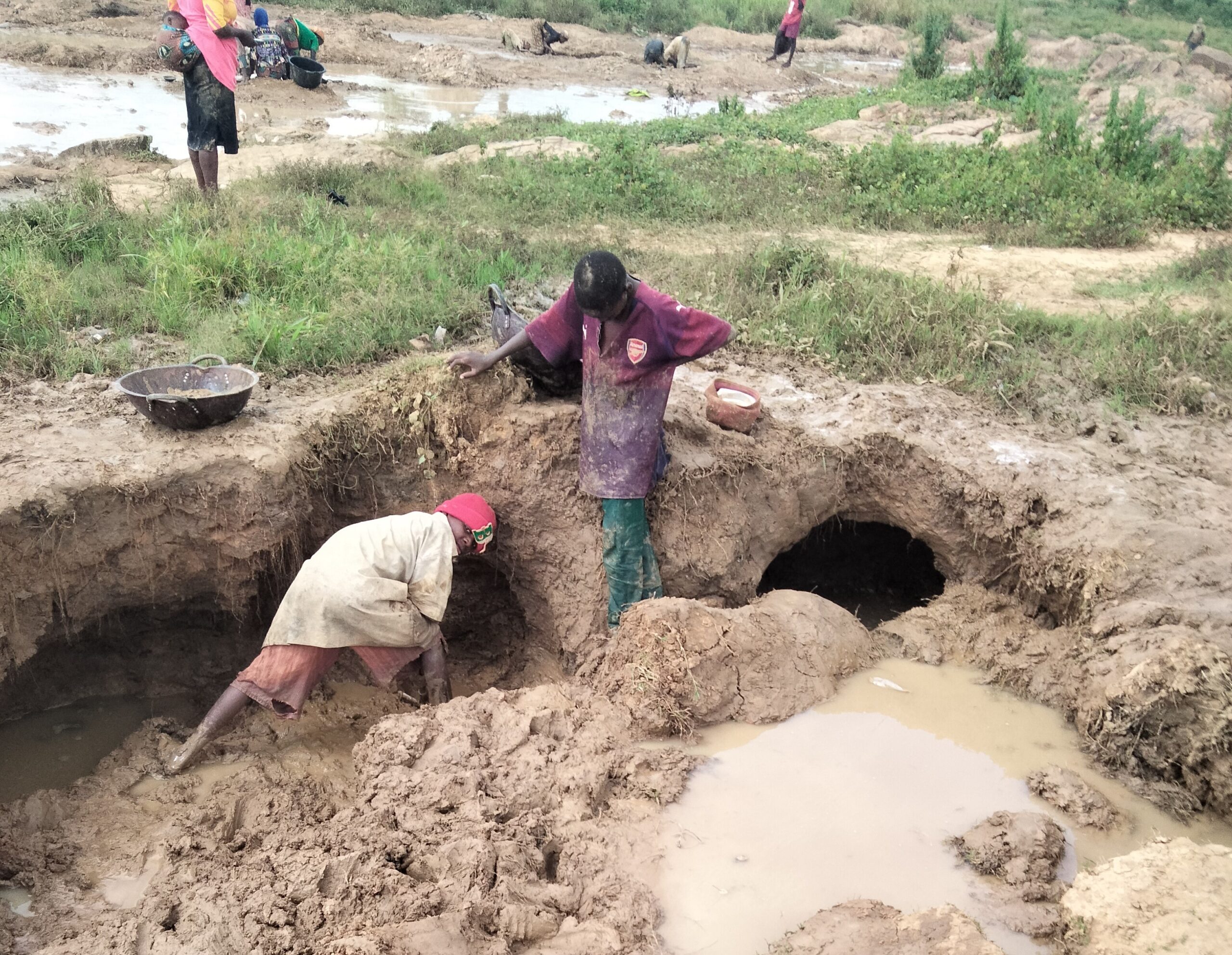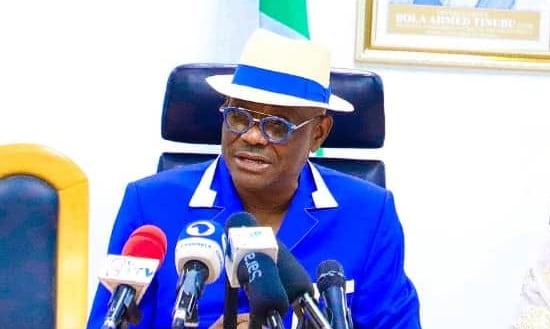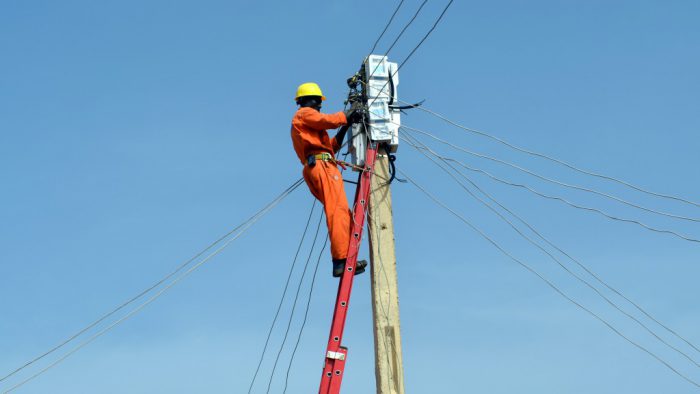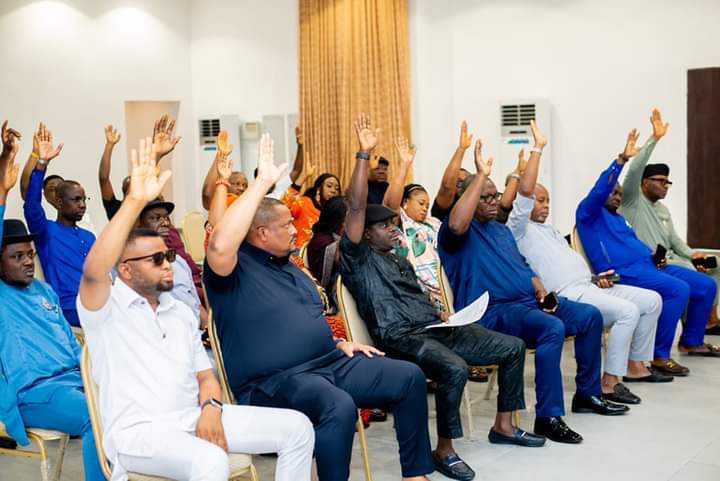Despite the ban on illegal gold mining in Niger state, miners have continued to adopt different tactics to defy the order. In this report, HAMZAT IBRAHIM ABAGA chronicles how schoolchildren and mothers are actively engaged in illegal mining activities.
In the bustling neighbourhoods of Maitumbi, Tunga, Kafintela, M.I Wushishi Estate, and Anguwan Roka in Minna, the Niger state capital, underage children dive deep into caves to extract gold. They do this at the expense of their education.
Amina, a junior student attending Maitumbi Secondary School, has skipped classes regularly, venturing off to the mining site for survival. She uses the money she earns, varying between N5,000 and N7,000 daily, not only to sustain herself but also to support her struggling parents.
Amina’s story shows how many children skip school or drop out to battle survival.
Advertisement
Last year, Isah Adamu, then chairman of the state universal basic education board (SUBEB), said there were over 700,000 out-of-school children in Niger—out of Nigeria’s 20 million children out of school. These figures encompass children between 6 and 18 years old, spanning from primary school to senior secondary school.
In addition, the north-central state ranked 9th in the out-of-school children index in Nigeria.
BETWEEN EDUCATION AND ILLEGAL MINING
Advertisement
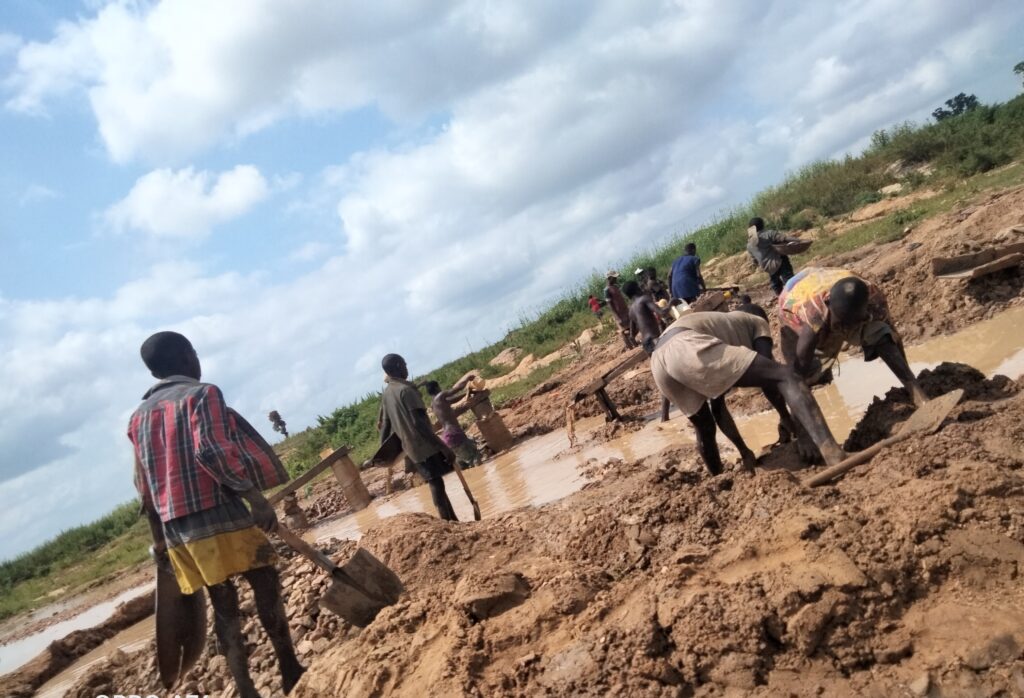
In August, Mohammed Bago, the state governor, suspended all forms of mining activities in the state. But this is just on paper. Illegal mining continues in the state capital, under the governor’s nose.
Sadiq, a 16-year-old high school student at Government Day Secondary School Tunga (Gidan Kwanu), began mining for gold when he was 10, relying on it for income. Despite claiming to mine only on weekends and during holidays to safeguard his studies, Sadiq’s parents revealed his erratic school attendance and prolonged hours at the mining site. His mother expressed concern about how he returned home late from the mining sites. He would leave home by 8 am and return by 8 pm.
Sadiq attends school at will, according to his mother, who fears for his future. The impact on his academic pursuit contradicts his earlier statement, exposing the challenges faced by young miners like Sadiq.
“If you are talking about Sadiq’s studies, that is nothing to write about. He often misses school for mining and always returns home late,” Maryam, his mother, told TheCable.
Advertisement
At the mining site, there was a 12-year-old boy affectionately known by his colleagues as Mr. Chif. He wore a head warmer, delving deep into the earth with a determined expression on his face, all in the pursuit of gold.
Despite his tender age, Mr. Chief, who only speaks Hausa, offered to serve as an intermediary between this reporter, who claimed to be a gold dealer, and miners at the site.
When asked about his absence from school during regular hours, Mr. Chif said he had never attended school and did not believe he would ever be in one in the future. His reasoning stemmed from the fact that he found immense satisfaction and financial success in his mining work. Each day, he earned between N7,000 and N10,000 naira, depending on his luck and dedication to his work.
At precisely 10:21 am, during school hours, a young boy named Abdul-Amin, 6, approached a mining site with his tools in his hands, ready to begin his daily work. Unfortunately, he was unable to proceed without his elder brother, who had not yet arrived at the site. When questioned about his absence from school, Abdul-Amin claimed it was due to a public holiday. This was an opportunity his parents needed to send him and his siblings to the mining site to earn a meagre income for themselves.
Advertisement
The story paints a complex picture of a child facing poverty and limited opportunities. It is crucial to recognise the importance of education in providing children with a broader range of possibilities for their future.
The International Labour Organization (ILO) lamented that about 160 million children are actively engaged in child labour globally.
Advertisement
“This is attributable to various factors such as poverty, ignorance, unemployment, absence of social security for the vulnerable, misinterpretation of cultural and religious beliefs and weak institutional framework,” the organisation said.
During the reporter’s visit to the mining site, a dealer named Yusuf purchased gold at a rate ranging from N450 to N550 per kilogram.
Advertisement
Yusuf said on certain days, miners could earn between N15,000 to N20,000 from their mining activities at the site.
PARENTS ATTRIBUTE UNDER-AGE MINING TO POVERTY AMID LACK OF AWARENESS
Advertisement
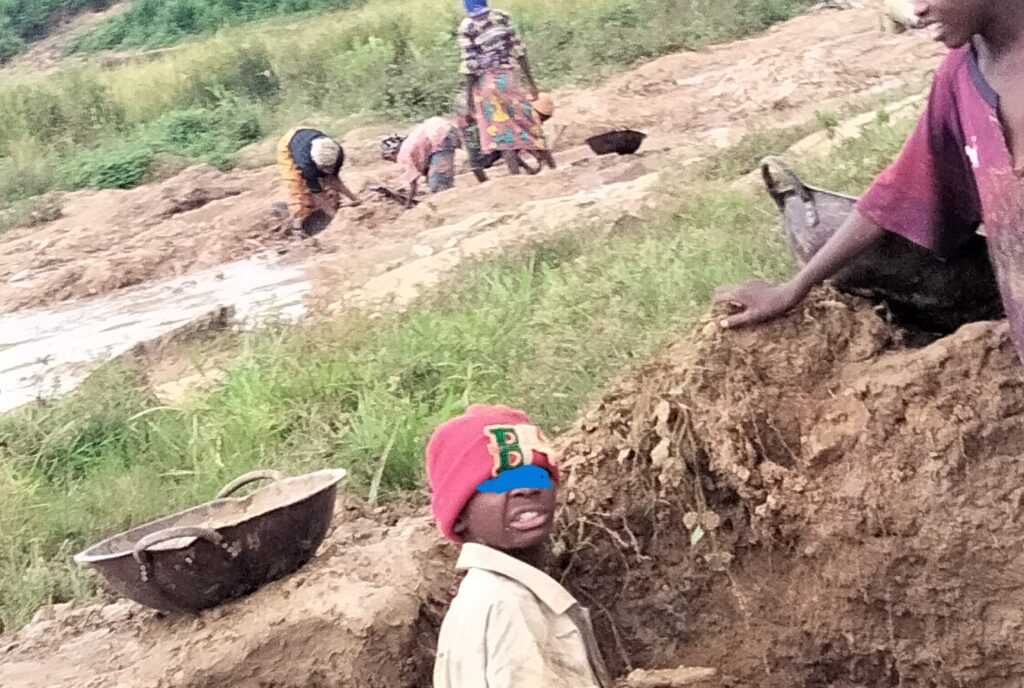
The rise in illegal mining activities among schoolchildren in the Maitumbi area can be attributed to the overwhelming poverty and hardship faced by their parents, according to Ibrahim Dauda, a resident of the area.
“It appears that some parents, desperate for any form of income, are encouraging their children to go to the mining site, hoping that they will contribute something to sustain the family,” Dauda said.
“The children involved in these activities are mostly pupils attending primary and secondary schools. Unfortunately, their parents, who are mostly retired civil servants and lack adequate means to provide for their households or pay school fees, are the ones encouraging their children to engage in such a dangerous enterprise.”
According to a Statista report, in 2022, approximately 88.4 million people in Nigeria experienced extreme poverty. Out of this total, around 44.7 million men and 43.7 million women were living on less than 1.90 U.S. dollars per day. Nigeria accounted for 12.9 percent of the global population in extreme poverty as of 2022.
For Adamu Yakubu, a resident of Kafintela area, lack of education and awareness about the potential dangers of illegal mining are leading parents to perceive it as a viable option, unaware of the legal and ethical implications.
He also views economic hardship as a major reason parents seek alternative means of income, especially in regions where job opportunities are limited. In such cases, parents may prioritise financial stability over legality.
Yakubu encouraged parents to always emphasise the importance of lawful and ethical means of earning a livelihood while encouraging children towards education and legitimate career pathways.
ILLEGAL MINING SPARKING YOUTH UNREST
In recent years, Minna has been a hotbed of violence perpetrated by minors and youth who are known as yan-daba.
Illegal mining is fueling a prolonged conflict between the youths of Kafintela and Maitumbi. Sadiq said the ongoing feud between these youth groups could be linked to illegal mining activities in the state.
Yusuf Galadima, Dagacin of the Maitumbi area, expressed deep concern about the rising trend of underage individuals engaging in illegal mining. He highlighted the daily conflicts at mining sites, causing damage to farmlands and hindering children from attending school.
Galadima said that despite community efforts to report these issues to the authorities, the government has been unresponsive, leading to a continuous cycle of youth unrest.
Suleimain Umar Shaba, also Dagacin of the Kafintela area, acknowledged the adverse impact of mining on children, contributing to a higher number of out-of-school children.
To address the escalating situation, local security guards have been introduced, successfully monitoring and mitigating the activities of these children.
A COMMUNAL SOLUTION
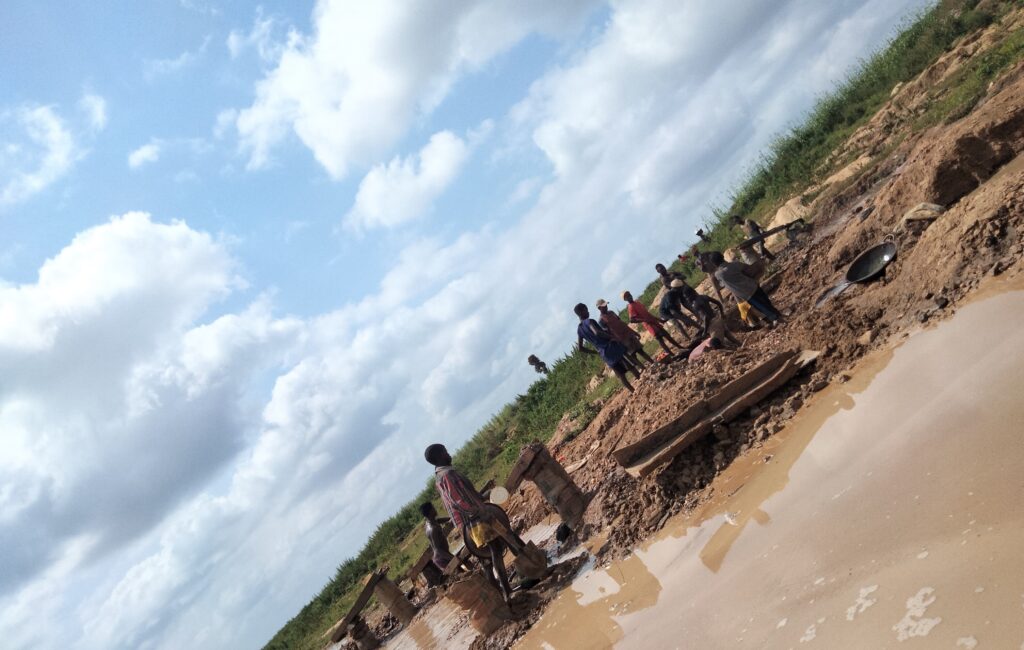
In UBE Primary School, Kafintela, a school insider told this reporter that the school has recorded minimal absenteeism owing to effective parent-staff collaboration. The school staff commended the Parents Teachers Association (PTA) for combating absenteeism linked to illegal mining.
At Day Secondary School Maitumbi, Abubakar Adamu, the principal, acknowledged past struggles with mining-related absenteeism. However, joint efforts between staff and parents have significantly reduced this issue.
Presently, parents must justify their children’s absence from school. Despite being hotspots for illegal mining, Kafintela and Maitumbi grapple with the impact on pupils. The united actions, nonetheless, signal a positive shift in overcoming these challenges and fostering consistent attendance.
STATE MINISTRY WORRIED
Recently, the Nigerian senate’s finance committee, led by its chairman, Senator Sani Musa, highlighted the potential for Nigeria to generate approximately $3 billion from solid minerals.
Emphasising the significance of the informal sector, particularly the mining industry, Musa expressed the view that it serves as an untapped revenue source for the country.
Garba Sabo Yahaya, Niger state’s commissioner for mineral resources, acknowledged the pressing issue of illegal mining within the state.
“The ministry has alerted the Miners Association of Nigeria (MAN), Niger state chapter, to tackle the problem head-on. A recent meeting with MAN members focused on the importance of data capture and profiling for all miners in the state to restore order,” Yahaya said.
The commissioner said the ban on mining in the state capital and other areas is still active. To strengthen compliance, Yahaya said the ministry is going to form a task force to ensure strict adherence to government directives.
Meanwhile, Hadiza Asabe Mohammed, the commissioner for basic and secondary education, has expressed concern over the 700,000 out-of-school children in the state. She attributed this issue to various factors, including illegal mining by schoolchildren, banditry, and poverty.
“The state government’s response involves a mega school approach, relocating pupils from conflict areas to safer schools to continue their education,” Mohammed said.
We changed the names of the children in the report to protect their privacy.
